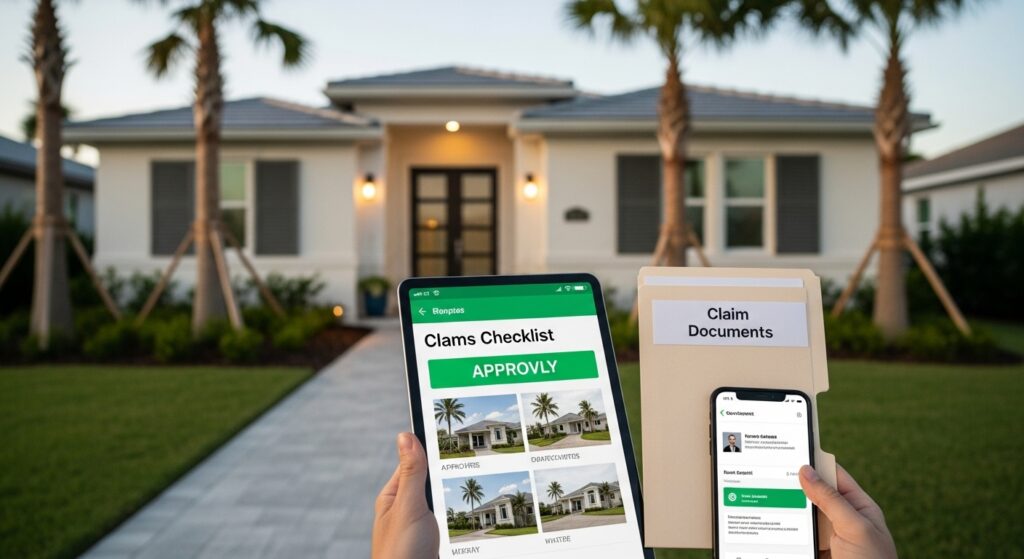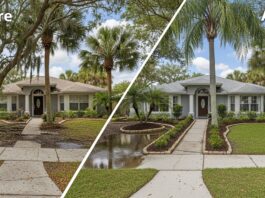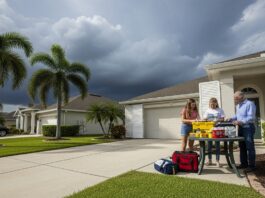Expand your “listing translator” skills so you can see past the gloss and spot what’s really behind the marketing.
When browsing home listings, especially in Florida, you’ll often see phrases like “cozy,” “custom,” or “needs TLC.” These aren’t always neutral descriptors. In many cases, real estate agents deploy euphemisms or coded language to spin a home’s flaws or quirks in the best possible light.
Originally published in 2016, this guide has been fully updated and expanded to help buyers and sellers alike decode more than 20 common listing code words, understand what they may imply in Florida’s unique real estate environment, and act accordingly.
Why “Real-Estate Code Words” Matter
Real estate is as much about perception as it is about structure and location. Because consumers often skim listings, agents use language to emphasize positives and downplay negatives. But savvy buyers (and sellers) can learn to read between the lines.
In Florida, additional risks exist, flood zones, hurricane exposure, older plumbing or roof systems, local zoning or wetlands restrictions, so understanding what a description *doesn’t* say can sometimes be as important as what it does.
20+ Common Listing Code Words & What They Really Mean
Below is a growing list of listing terms you’ll frequently see. For each, we provide a “translation,” plus what to inspect or ask when you see it.Cozy / Charming / Quaint Translation: smaller than average, awkward layout, low ceiling, little space for furniture.
What to check: room dimensions, ceiling heights, storage closets, traffic flow.Tons of character / Full of character Translation: older finishes or quirky features — could mean mechanicals have aged, nonstandard angles, or hidden defects.
What to check: age of plumbing, wiring, HVAC, structural irregularities.Custom / Unique / Artistic Translation: one-off design choices — sometimes delightfully creative, sometimes impractically eccentric.
What to check: design flow, resale viability, materials quality, permit compliance.As-is / Cash Only Translation: the property likely needs significant repairs or is in distress; the seller will not (or cannot) do fixes. What to check: structural integrity, major systems, inspection contingency or lack thereof.Up-and-coming / Trendy / Hip Translation: neighborhood still developing, may lack infrastructure or services yet.
What to check: crime stats, future development plans, municipal investment, amenities timeline.Needs TLC / Needs Work / Renovation Opportunity Translation: repairs and upgrades are expected; the seller is signaling you’ll take on the burden.
What to check: budget realistic repair estimates, permit history, structural survey.Good bones / Solid shell Translation: the basic structure is okay, but cosmetic, mechanical, or interior systems may be weak.
What to check: foundation cracks, roof condition, HVAC, mold/moisture signs.Light & bright / Sun-filled Translation: lots of windows or glass, possibly older single-pane, heat gain, or glare issues.
What to check: window age, UV exposure, cooling load, shading, Florida sun orientation.Open concept / Open flow Translation: few walls, may lack defined rooms, limited opportunities for privacy or sound control.
What to check: structural support walls, HVAC zoning, potential noise or layout issues.Coastal / Waterfront / Water view Translation: implies added premium, but may come with flood, erosion, or insurance risks.
What to check: FEMA flood zone designation, coastal setback requirements, insurance cost, sea level rise exposure.Hidden Gem / Hidden Value Translation: undervalued or overlooked, possibly due to deferred maintenance or market stigma.
What to check: property condition, reason for discount, comparables.Investor Special / Fixer Upper Translation: ideal for someone willing to invest in repairs or renovations; not move-in ready.
What to check: rehab cost, permits, time frame, neighborhood comparables.Quiet / Private / Secluded Translation: not much traffic or neighbors — could also mean difficult access, poor visibility, or distance from services.
What to check: road quality, emergency service access, utility distance.Low-maintenance yard / Landscaped / Garden-style Translation: small yard, pavers or synthetic surfaces, possibly minimal outdoor space.
What to check: yard size, irrigation system, drainage, landscaping upkeep details.Pride of ownership / Meticulously maintained Translation: everything appears well kept — good sign, but don’t assume perfection.
What to check: service records, deferred maintenance, roof, appliances lifespan.Hidden Potential / Transformative Translation: the seller is signaling growth or value upside, but risk is inherent.
What to check: zoning, renovation feasibility, structural flexibility.Rent-ready / Turnkey Translation: ready for occupancy, often used in investment property listings; check if everything is indeed in working order.
What to check: verify warranties, systems, tenant lease terms, inspection history.Handyman’s special Translation: heavy repair project; often has deferred maintenance or structural issues.
What to check: budget, structural engineering, hidden defects, mold, pest damage.Historic / Period charm Translation: older construction, potential for outdated systems, preservation restrictions.
What to check: local historic commission rules, permitted updates, restoration costs.
As new listing language emerges (especially in hot or trending markets), always stay alert for novel code words — and don’t shy from asking direct questions of your agent or seller.
Red Flags & Follow-Up Questions
When you spot these code words, push deeper. Here are things to always ask or inspect:
- “When was the roof last replaced? Are there repair records?”
- “What’s the age and condition of HVAC, plumbing, electrical?”
- “Are there drainage or water intrusion issues?”
- “Is the property in a flood zone or coastal setback area?”
- “Have there been recent permits or inspections?”
- “Why is the seller selling ‘as-is’? What’s their motivation?”
- “Can I do a full home inspection, including structural, pest, roofing?”
These questions help turn marketing spin into clarity — you’re not just buying a story, but a structure and rights.
Florida Special Considerations
Because of Florida’s climate, legal environment, and risk exposures, some listing language has extra implications here:
- Hurricane & roof age concerns: In Florida, roofs have finite useful lives. Even a “pride of ownership” home may hide aging shingles or subroof deterioration.
- Flood / drainage / stormwater: A “low-maintenance yard” or “landscaped yard” claim could mask poor drainage or frequent flooding in rainy seasons. Also, coastal or waterfront claims often involve complex flood insurance and erosion risk.
- Insurance & wind mitigation disclosures: Buyers should ask about wind mitigation features (roof straps, hurricane shutters) and whether past claims exist. If insurers required mitigation decades ago, you may need retrofits.
- Zoning, wetlands, or setback constraints: In Florida, development and expansion may be limited by wetlands or coastal setback lines — “custom” or “transformative potential” claims may be overstated unless permitted.
- Historic / preservation rules: Some older Florida homes are in historic districts, which impose restrictions on changes to facades or structure.
- Term “swampland in Florida” legacy: The phrase “swampland in Florida” became a metaphor for fraudulent real estate deals, reminding buyers to ensure due diligence on swampy or misleading property claims.
Tips for Sellers: Use Code Words Wisely (Ethically)
Understanding the flip side — how to write an honest, positive listing — is also useful. Here are a few tips:
- Avoid overly vague euphemisms; be specific about upgrades (e.g. “recent roof,” “new AC in 2022”).
- Use positive framing without hiding defects — mention “recently repointed pool deck” or “replumbed in 2018.”
- For older homes, call out “heritage appeal with modern updates” rather than just “historic.”
- Disclose high-risk factors (flood, hurricane exposure) upfront to reduce surprises.
- Invite inspections or show maintenance records to instill confidence.
Real estate listing language is part marketing, part persuasion — but the savvy buyer (or seller) learns to see past the gloss. In Florida, the stakes are higher because of weather, exposure, and regulatory complexity. Use this expanded guide and FAQ below as your cheat sheet to translate listings into real insight.
Frequently Asked Questions
1. What does “as-is” really mean in a home listing?
“As-is” means the seller is not willing (or able) to make repairs or improvements — you accept the property in its present condition. Always do a full inspection and factor in potentially hidden defects or repair costs.
2. Why do listings use words like “cozy” or “quaint” instead of “small”?
Terms like “cozy” or “quaint” offer a more positive spin on small spaces or unconventional layouts. They soften the perceived drawbacks, so you should check square footage and spatial usability yourself.
3. When a listing says “good bones,” what should I test?
“Good bones” suggests structural integrity is solid, but systems (roof, plumbing, wiring) may need work. Ask for structural reports, inspect the foundation, slab, framing, and check for signs of water intrusion.
4. Is “custom / unique” always a red flag?
Not always — these terms can point to creative design, tailored finishes, or high-end workmanship. But they can also mask impractical layouts or nonstandard construction. Ask about materials, warranty, and resale appeal.
5. What extra checks should Florida buyers make?
In Florida, consider flood zones, hurricane resilience, roof age, wind mitigation, coastal setbacks, and local zoning. A “water view” or “coastal” claim may come with significant flood/insurance costs.
6. Does “turnkey” mean everything is brand new?
“Turnkey” means the property is ready to live in, but that doesn’t guarantee everything is pristine or warrantied. Always request inspection reports and check the condition of appliances, systems, and finishes.
7. How can I tell when a “needs work / handyman’s special” listing is worthwhile?
Compare the discount relative to comps, get an itemized repair estimate, and verify zoning and permit feasibility. Ensure your renovation budget allows for surprises like hidden mold, structural work, or utility upgrades.
8. When should a seller use language like “meticulously maintained”?
Only if backed by records: maintenance receipts, service histories, and any upgrades. Without documentation, it becomes a vague claim. Be prepared to support the statement if challenged by buyers.
9. Are there legal constraints on listing language in Florida?
Yes — Florida’s real estate statutes and Florida Realtors’ guidelines require non-misleading, truthful advertising. Omitting material defects, misrepresenting features, or concealing hazards can lead to liability. Also, fair housing rules must be followed in descriptions.
10. How can I use this knowledge as a seller to write better listings?
Be specific and transparent. Use quantifiable upgrades (“new shingle roof 2023”) rather than vague euphemisms. Disclose known risks, highlight desirable features honestly, and provide supporting documentation. Transparency builds trust and reduces renegotiation later.
Part of finding a new home is making sure it is protected with homeowners insurance. Contact GreatFlorida Insurance agents for help.



